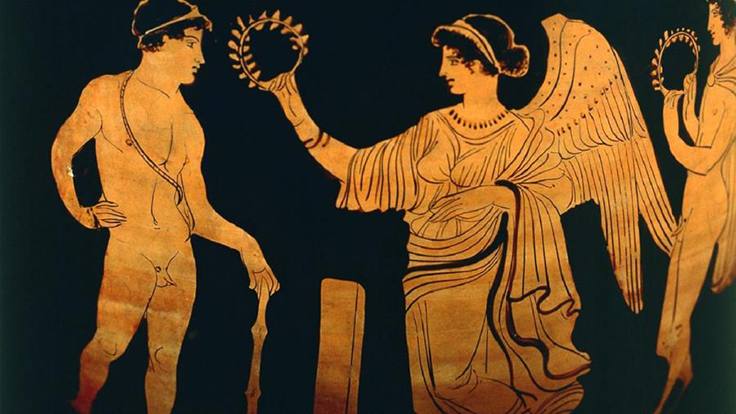6 facts about the ancient Olympic Games
Did you know that the Olympic Games were the greatest sporting event of antiquity and that is why they revived as a world sporting event?

1. Greece was coming out of the dark ages
Since the end of the Trojan War, around 1200 BC, nothing special was happening in Greece, only wars and population movements. In 776 BC it was established to be held in Olympia every 4 years the stadium race, 192.28 meters, with prize an olive wreath. Soon their fame went beyond the limits of Ilia and spread throughout Greece.
2. 16 sports were being conducted with amateur athletes
The Olympic Games used to express the sportsmanship: noble competition, the honor of victory, equality, solidarity and peace. The athletes didn't aim for any material benefit, so there was no space for professional athletes in the Games.
In their final form the Games included the following sports:
- stadium (race of 192.28 meters)
- diavlos (2 stadiums race)
- dolichos (endurance race of about 4,800 meters)
- pentathlon
- wrestling
- pigmi (ancient greek boxing)
- pagkration
- horse racing
- tethrippon chariot race (with 4 horses)
- sinoridon chariot race (with 2 horses)
- tethrippon polon chariot race
- sinoridon polon chariot race
- horse racing polon
- boy's racing and wrestling
- boy's pigmi
- boy's pagkration
- hoplite race (race in which the runners were wearing an hoplite uniform)
3. The timeline of the Games was the calendar of the ancient city-states
As it was one of the few events of pan-Hellenic acceptance, the series of the Games was used as a calendar for the dating of events of pan-Hellenic importance. The naval battle of Salamis, which took place in 480 BC, was dated to take place during the 74th Olympiad 776 - (74 * 4) = 480.
4. Just like today it was a huge event
The program of the games was as follows:
- declaration of the Olympic truce
- preparation of the athletes
- reception of city representatives and visitors
- 1st day: start of the sports with rituals and swearing-in of the athletes, boy's games
- 2nd day: horse racing, pentathlon
- 3rd day: procession and sacrifice on the altar of Zeus, races
- 4th day: wrestling, pigmi, pagkration, hoplite road games
- 5th day: closing ceremony with the coronation of athletes, Olympic anthems and overnight celebrations
The people of Ilia were worthy organizers of the Games as they completed all the challenges related to the organization of the games, the ceremonies, the hospitality of thousands of visitors and their feeding.
5. Since the Hellenistic period, the Olympic Games had been in decline
Sports gradually became professional and detached from sportsmanship. In Roman times it was hit as for the Romans it was synonymous with spectacle and all the games that took place in the empire had to honor the emperor.
6. 293 ancient Olympiads were held, from 776 BC to 392 AD
They were abolished in 393 AD by decree of the emperor Theodosius the Great as pagans, they lasted for 1168 years.